How To Gain Weight: Best Vitamins You Should Be Taking
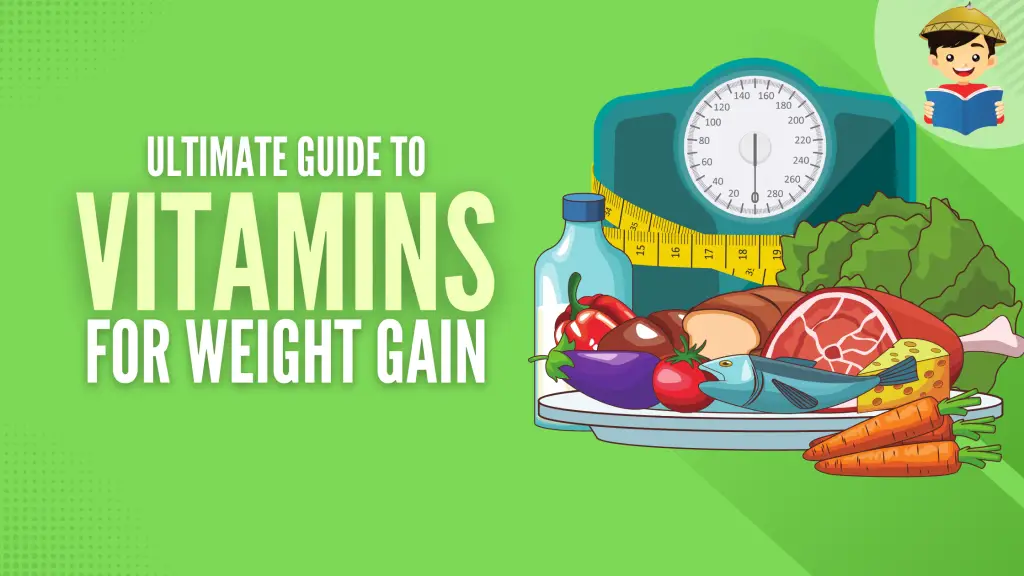
Do vitamins cause weight gain? Read on to find out the answer, especially if you are struggling with gaining weight and currently taking dietary supplements. This article will discuss why vitamins are essential, whether you can use vitamins to gain weight, and how to increase your calorie intake.
Disclaimer: This is for educational and informational purposes and is not intended to substitute medical advice. Dietary needs vary based on age, sex, height, weight, physical activities, and chronic health illnesses. It is best to speak with your physician and/or nutritionist-dietitian to be advised on the best vitamin supplements for your nutritional needs.
Table of Contents
- Understanding Your Body: Do Vitamins Cause Weight Gain?
- Importance of Vitamins in Weight Gain
- Best Vitamins to Gain Weight in the Philippines
- Tips on How To Gain Weight
- Frequently Asked Questions
- 1. What should be my considerations in choosing vitamins and minerals?
- 2. Is it safe to take multiple vitamin supplements, or should I just choose multivitamins?
- 3. I make sure to have a balanced diet, and I only take vitamin C for my immune system. Does it have any contraindications?
- 4. Is it safe to take vitamin and mineral supplements if I am pregnant and/or breastfeeding?
- References
Understanding Your Body: Do Vitamins Cause Weight Gain?

The short answer is no. Vitamins cannot directly increase your weight because they contain very few calories1 . There is no evidence of a link between vitamins and weight gain or loss. Normally, deficiency can cause appetite loss, but this does not imply that higher levels of a vitamin promote weight gain.
However, taking multivitamins increases the likelihood that your body will have all the nutrients it requires to function properly. The nutrients aid in metabolism, which, in turn, directly influences your weight2. Vitamin B12, for example, regulates protein and fat metabolism3, requires B-6 and folate to work properly. Meanwhile, thiamine, or vitamin B1, aids in carbohydrate metabolism4.
Your metabolism regulates the rate at which your body burns calories, and a healthy metabolism is essential for weight control.
If you are taking multivitamins because you are not eating healthily, are physically inactive, or are on a restrictive diet, it is possible that it is these associated behaviors, not the multivitamins, that are causing weight gain. You can find the right multivitamin for you, but keep in mind that vitamins should supplement, not replace, a healthy lifestyle.
Importance of Vitamins in Weight Gain

Your organs and body systems work hard to keep our bodies functioning. Our bodies metabolize or break down the foods we eat to use them as energy. Energy is used to fuel body processes such as our digestion and breathing, as well as to support our organ systems, like the nervous and cardiovascular systems. Vitamins are necessary for these energy-releasing metabolic processes.
To meet our nutritional needs, we must obtain 13 essential vitamins from our food. These vitamins are divided into fat-soluble and water-soluble vitamins5.
| Fat-Soluble Vitamins | Water-Soluble Vitamins |
| Vitamin A Vitamin D Vitamin E Vitamin K | Vitamin C Thiamin (Vitamin B1) Riboflavin (Vitamin B2) Niacin (Vitamin B3) Pantothenic Acid (Vitamin B5) Vitamin B6Biotin (Vitamin B7) Folic Acid (Vitamin B9) Cobalamin (Vitamin B12) |
So, what is the role of these vitamins in gaining weight?
In general, weight gain occurs when you consume more calories than you can consistently burn. The major components of foods, also known as macronutrients, are responsible for weight gain. Calories are found in macronutrients such as carbohydrates, fats, and proteins. Vitamins and minerals, on the other hand, are micronutrients that do not contain calories and, thus, cannot contribute to weight gain.
However, gaining weight may be difficult to achieve if you are vitamin deficient, as usually, it causes a loss of appetite. Iron, zinc, and thiamine deficiency can cause appetite loss6. A blood test can tell you if you are deficient in nutrients, especially iron, zinc, and thiamine. The following list provides some excellent sources of these vitamins.
- Iron: Breakfast cereals fortified with iron, oysters, lentils, spinach, beans, sardines, and beef
- Zinc: Oysters, beef, crab, lobster, pork, chicken, pumpkin seeds, and yogurt.
- Thiamine (Vitamin B1): Pork, fish, black beans, enriched cereals, bread, noodles, and rice.
If you lack these micronutrients, supplementing may help restore your appetite and make it easier for you to consume the calories required to gain and maintain a healthy weight.
Best Vitamins to Gain Weight in the Philippines
The following are the best commercially available supplements in the Philippines that are typically high in calories and contain vitamins and minerals:
1. Appeton Nutrition – Weight Gain
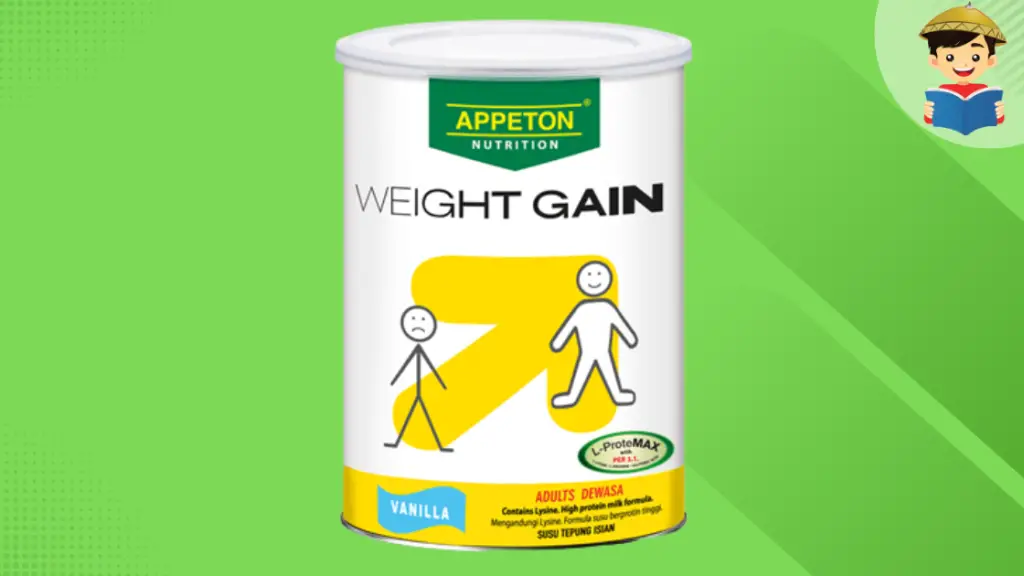
The Claim
Appeton Weight Gain is a high-protein formula clinically proven to help you healthily gain weight. One clinical study7 found that after consuming Appeton Weight Gain 3 times a day on top of the normal meal for two months, the average weight gain for both males and females was 2kg. Weight gain is gradually increased with no side effects!
What’s Inside?
- L-ProteMAX contains L-lysine, L-Arginine, and Glutamic acid. L-Arginine is made up of the amino acid, glutamic acid. It increases lean mass by stimulating growth hormone. L-Lysine promotes the growth of lean body mass. This causes weight gain as lean mass increases!
- It has a high PER of 3.1 for faster weight gain.
- Simple to digest and absorb (good bioavailability).
- Whey protein is present. Whey protein has amino acids that are easier to digest and absorb.
- Contains the necessary amino acids for tissue growth.
2. Optimum Nutrition – Serious Mass
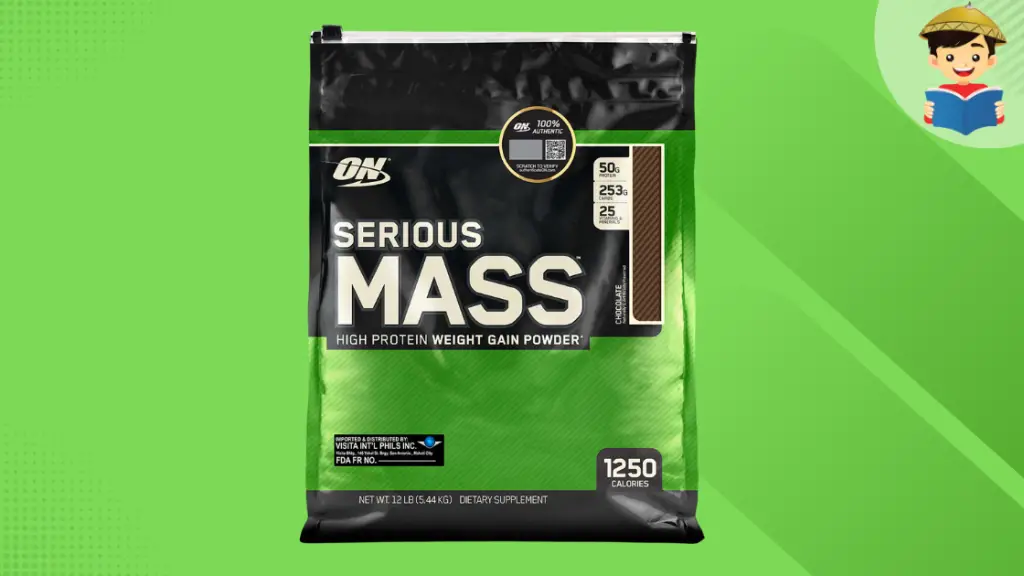
The Claim
It claims to be an ultimate muscle-building and weight-gain supplement. With 1,250 calories per 2-scoop serving and 50 grams of protein to aid muscle recovery, this powder is ideal for post-workout and between-meal shakes. SERIOUS MASS gives you the tools you need to achieve your weight-gain goals.
What’s Inside?
- 1,250 calories per serving to help support a calorie surplus for weight gain and muscle building.
- 50 grams of blended protein per serving to help build and maintain muscle. It is critical to meet your protein requirements so that some weight gain comes from muscle.
- 252-254 grams of carbohydrates (with no added sugar) to help fuel workouts and replenish glycogen stores.
- 3g creatine monohydrate supports muscle strength, power, and size when combined with high-intensity activities.
- 20 additional vitamins and minerals (including l- glutamine).
3. NOW Sports – Carbo Gain
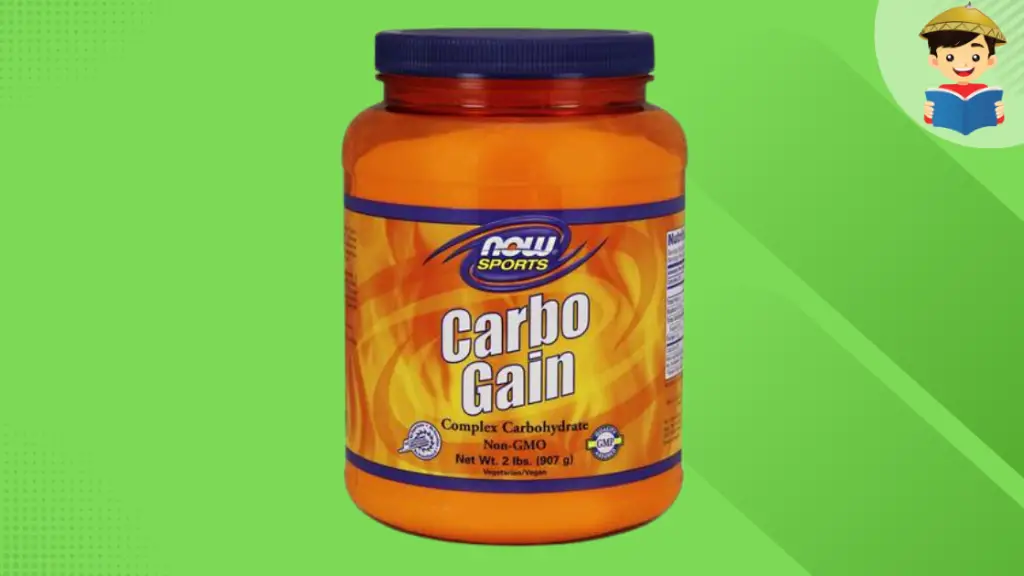
The Claim
NOW® Carbo Gain is a completely natural complex carbohydrate supplement made from maltodextrin, an easily digestible blend of complex carbohydrates derived from corn starch.
Maltodextrin contains “glucose polymers,” linked sugar compounds that the body can assimilate and use more easily. Glucose polymers are metabolized slowly and steadily, which can help to sustain energy levels during endurance workouts and/or athletic events, as well as support weight gain.
Carbo Gain contains almost no protein, fat, or fiber and is an excellent energy source for athletes.
What’s Inside?
- Carbohydrate Complex: Carbo Gain is made entirely of maltodextrin, a complex carbohydrate derived from non-GMO corn.
- Pure Maltodextrin: Maltodextrin comprises “glucose polymers,” which are chains of glucose molecules easily digested and assimilated by the body.
4. Clusivol Plus
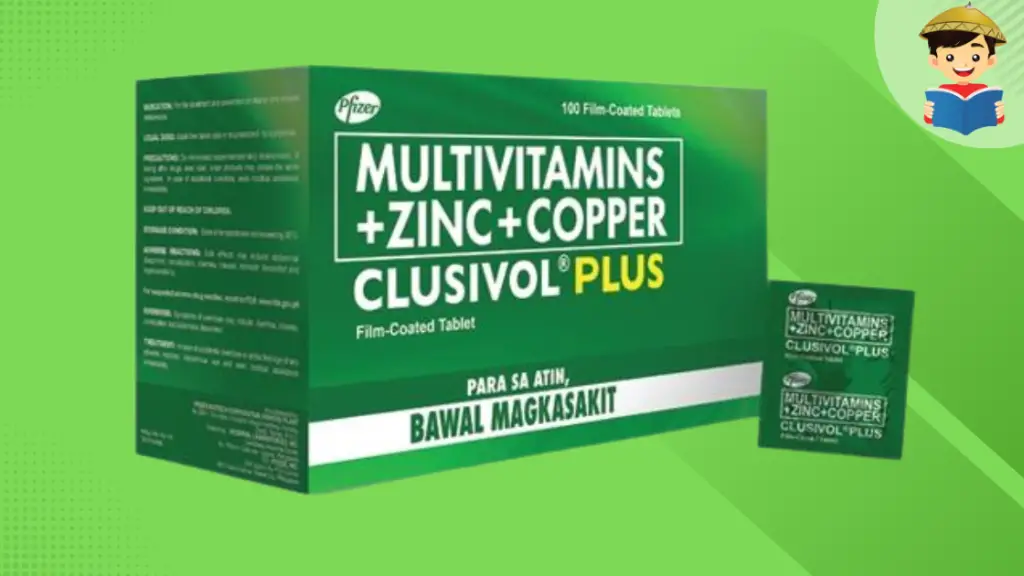
The Claim
Used to treat and prevent vitamin and mineral deficiencies. It boosts immunity and contains nutrients that aid in producing energy and positively impact weight.
What’s Inside?
Clusivol Plus (multivitamins + zinc + copper) contains vitamins C, E, copper, and zinc. It also contains eight (8) B-complex vitamins at safe levels (B1, B2, B6, B12, Biotin, Niacinamide, Pantothenic Acid, and Folic Acid).
In addition to supplements, there are other ways to gain weight, achieve a normal Body Mass Index (BMI), and maintain ideal body weight.
Tips on How To Gain Weight
If you have a poor appetite, ask your doctor if blood tests should be done to see if you have any vitamin deficiencies.
It is also possible that something is going on in your body that is causing you to expend more energy while resting. Cancer8, congestive heart failure9, and diabetes10 can all cause you to burn more calories, putting you at risk of losing weight.
The best way to gain weight healthily is to consume more calories than you burn by eating various nutrient-dense healthy foods. Even though processed foods are high in calories, they lack the health benefits and nutritional value of the whole, natural foods.
It is fine if you cannot eat large food at once. It is recommended to increase your calorie intake by eating three meals and two to three high-calorie snacks per day11. When eating, consume your protein and fat sources first, followed by high-fiber foods such as raw vegetables and fruits. Eating the latter first will make you feel fuller faster, leaving less room for high-energy foods.
You may also want to add some calorie boosters to your meals. Good calorie boosters include avocado oil, spreads like butter, cream cheese, avocado, hummus, and peanut butter; and food ingredients that you can mix with your food like granola, oats, flaxseeds, cheese, mayonnaise, and whole milk. Here are some ways to use them:
- Heavy cream complements soups, smoothies, oatmeal, and hot beverages.
- Scrambled eggs can be flavored with ingredients such as shredded cheese and mayonnaise.
- Spreading peanut butter or cream cheese on banana bread adds a lot of calories.
More strategies to help you gain weight are as follows:
- Drinking water before meals is not recommended. This can fill your stomach and make it difficult to consume enough calories.
- Consume milk. To quench thirst, drinking whole milk is recommended as it contains more high-quality protein and calories.
- Make use of larger plates. If you want to consume more calories, use larger plates, as smaller plates can cause people to eat less.
- Pour some cream into your coffee. This is a simple way to increase the number of calories.
- Consider creatine. Creatine monohydrate, a muscle-building supplement, can help you gain a few pounds of muscle weight.
- Get enough rest. Sleeping well is critical for muscle growth.
- Avoid smoking, and if you do smoke, think about quitting. Smokers typically weigh less than nonsmokers, and quitting smoking frequently may result in weight gain.
Frequently Asked Questions
1. What should be my considerations in choosing vitamins and minerals?
Due to limited regulation of vitamin supplements, it is not always clear which ones are high quality, nor which are a waste of your money or potentially dangerous. Always check its contents and verify if it is FDA-regulated. It is still best to consult your attending physician to avoid contraindications with your health condition.
2. Is it safe to take multiple vitamin supplements, or should I just choose multivitamins?
Multivitamins are an excellent place to start if you are new to supplements. A well-formulated, comprehensive multivitamin provides most of your daily essential vitamins and minerals in a single dose. They are, however, not always individualized. Some multivitamins on the market may skimp on the vitamins and minerals you are deficient in precise amounts. This is especially true if you follow a specific diet, such as vegan or keto.
Individual vitamins, on the other hand, give you and your attending physician complete control over your supplement routine, allowing you to design and personalize your vitamin regimen for your problem areas of nutritional insufficiency and functional health support area needs. The disadvantage is that you must plan your day and nutrition ritual to swallow more pills.
Both are safe to take. But for convenience, you may want to consider taking multivitamins to support overall nutrient sufficiency.
3. I make sure to have a balanced diet, and I only take vitamin C for my immune system. Does it have any contraindications?
Vitamin C supplementation is not recommended if you have thalassemia, G6PD deficiency, sickle cell disease, or hemochromatosis. If you have any of these medical conditions, you should see your doctor for prescriptions.
4. Is it safe to take vitamin and mineral supplements if I am pregnant and/or breastfeeding?
During pregnancy, women’s absorption of certain nutrients increases, which can aid in achieving adequate nutrient levels. Several nutrients, including vitamins A, B1, B2, C, and D, must be consumed in greater quantities during pregnancy12.
Meanwhile, breastfeeding mothers require even more nutrients than pregnant women. Increased amounts of the aforementioned vitamins, as well as vitamins B3 and B12, are required when breastfeeding13. Except for vitamin D, adequate levels of these vitamins can be obtained by eating a healthy, varied diet. Breastfeeding women, like pregnant women, require a daily vitamin D supplement.
It is best to consult your doctor before starting micronutrient supplementation if you are pregnant, breastfeeding14, or taking medications.
References
- Vitamins and Minerals. Retrieved 26 August 2022, from https://www.hsph.harvard.edu/nutritionsource/vitamins/
- Major, G., Doucet, E., Jacqmain, M., St-Onge, M., Bouchard, C., & Tremblay, A. (2008). Multivitamin and dietary supplements, body weight and appetite: results from a cross-sectional and a randomized, double-blind placebo-controlled study. British Journal Of Nutrition, 99(5), 1157-1167. doi: 10.1017/s0007114507853335
- Sahasrabudhe, M., & Lakshminarayan Rao, M. (1951). Effect of Vitamin B12 on the Synthesis of Protein and Nucleic Acids in the Liver. Nature, 168(4275), 605-606. doi: 10.1038/168605b0
- Masuda, H., Masuda, T., & Hatta, H. (2015). Effect of thiamin (vitamin B1) on carbohydrate metabolism at rest and during exercise. The Journal Of Physical Fitness And Sports Medicine, 4(4), 337-341. doi: 10.7600/jpfsm.4.337
- Alma, L. (2022). What Is the Difference Between Fat-Soluble and Water-Soluble Vitamins? Retrieved 26 August 2022, from https://www.verywellhealth.com/fat-vs-water-soluble-998218
- Micronutrient Deficiency. (2014). Retrieved 26 August 2022, from https://www.sciencedirect.com/topics/agricultural-and-biological-sciences/micronutrient-deficiency
- Appeton offers solution for healthy weight. (2013). Retrieved 26 August 2022, from https://www.theborneopost.com/2013/03/27/appeton-offers-solution-for-healthy-weight/
- Weight loss. (2020). Retrieved 26 August 2022, from https://www.cancerresearchuk.org/about-cancer/coping/physically/diet-problems/types/weight-loss
- Song, E., Lee, Y., Moser, D., Dekker, R., Kang, S., & Lennie, T. (2014). The Link of Unintentional Weight Loss to Cardiac Event–Free Survival in Patients With Heart Failure. Journal Of Cardiovascular Nursing, 29(5), 439-447. doi: 10.1097/jcn.0b013e3182a46ba8
- Preventing Type 2 Diabetes. (2016). Retrieved 26 August 2022, from https://www.niddk.nih.gov/health-information/diabetes/overview/preventing-type-2-diabetes
- Gunnars, K. (2018). How Many Meals Should You Eat per Day?. Retrieved 26 August 2022, from https://www.healthline.com/nutrition/how-many-meals-per-day
- Abdullah, M., Jamil, R., & Attia, F. (2022). Vitamin C (Ascorbic Acid). Retrieved 26 August 2022, from https://www.ncbi.nlm.nih.gov/books/NBK499877/
- Garcia, E., Ventura, M., & Dayco, L. https://www.unilab.com.ph/articles/nutritional-needs-for-the-pregnant-and-lactating. Retrieved 26 August 2022, from https://www.unilab.com.ph/articles/nutritional-needs-for-the-pregnant-and-lactating
- Vitamins and supplements during pregnancy. (2021). Retrieved 26 August 2022, from https://www.pregnancybirthbaby.org.au/vitamins-and-supplements-during-pregnancy
Written by Bermonica Satuito, RND
Bermonica Satuito, RND
Bermonica Satuito is a Registered Nutritionist-Dietitian (RND) who earned her degree from the University of the Philippines (UP) Los Baños. She is currently practicing in the medical aesthetics industry after working in research at WHO (World Health Organization) Philippines. Qualified and trained in educating individuals to achieve optimum well-being, she writes and creates content about health on various platforms. Youth leadership, community volunteering, SDGs, ASEAN, and entrepreneurship are among her interests.
Copyright Notice
All materials contained on this site are protected by the Republic of the Philippines copyright law and may not be reproduced, distributed, transmitted, displayed, published, or broadcast without the prior written permission of filipiknow.net or in the case of third party materials, the owner of that content. You may not alter or remove any trademark, copyright, or other notice from copies of the content. Be warned that we have already reported and helped terminate several websites and YouTube channels for blatantly stealing our content. If you wish to use filipiknow.net content for commercial purposes, such as for content syndication, etc., please contact us at legal(at)filipiknow(dot)net